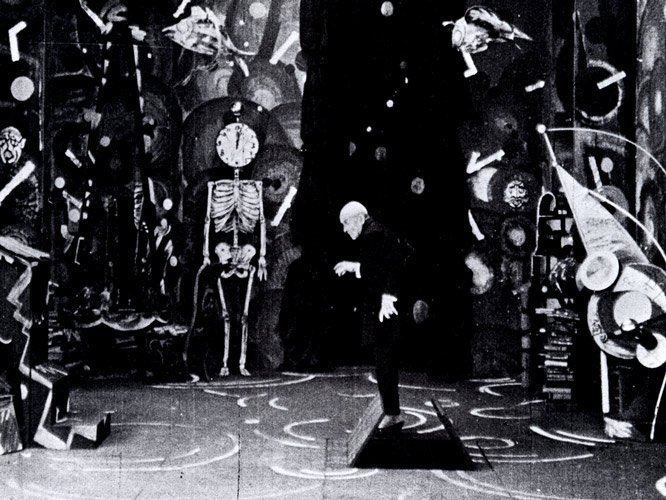
Genuine (O.V. “Genuine, die Tragödie eines selstamen Hauses” / translation: “Genuine, the tragedy of a strange house”)
Germany, 1920
Director: Robert Wiene
Screenplay: Carl Mayer
Starring: Fern Andra, Hans Heinrich von Twardowski, Ernst Gronau, Harald Paulsen
Genre: Mystery
Plot
A painter receives a visit from a potential client who wants to buy one of his paintings. It is a portrait of an ancient heroine. The painter says that the painting is not for sale. His friends try to convince him, but there is no way. When he is left alone, the painter begins to read a legendary story, and dreams that the woman in the painting comes to life and comes out of the painting. He also dreams of a fight between tribes, and of the capture of the heroine, who ended up as a slave in a harem.
She is a certain Genuine, who was the priestess of the defeated tribe. An individual with a cylinder seems to want to buy her. He then goes to the barber Guyard, who has recently asked the young Florian to become an apprentice in his barbershop.
Guyard’s barbershop is being targeted by the authorities. A magistrate sends him a letter to appear before him.
The man who bought Genuine and a black slave receives a letter from his grandson Percy, who announces his visit. Genuine appears unexpectedly and manages to make Florian fall in love. Then, the priestess orders the slave to kill the young apprentice.
But she will be “purified by love”. Even so, the villagers consider her a witch and are ready to liquidate her…
Comment
This film was directed by Robert Wiene, famous above all for “The Cabinet of Dr. Caligari” (also from 1920) and for “Orlac’s Hands” (1924). The film we are discussing today is one of his lesser-known works. Its plot contains dreamlike and fantastic elements. The protagonist artist dreams of a distant era, in which he would have liked to live, idealizing the heroine he has painted.
From there on, a series of apparently unconnected events take place, with various characters that somehow play a role in the artist’s subconscious. We are offered dreamlike imagery, such as the skeleton with the head of a clock (an obvious symbol of the inexorable advance of time).
This Genuine is a femme fatale, as well as a manipulator who seeks to make the men who fall into her nets unhappy. It is not clear why she is so fascinating to the male characters in the film, because in my opinion she is not very attractive.
The entire plot unfolds elliptically during the protagonist’s dream. The film is confusing, with a story that is difficult to follow, intermingling the world of dreams with that of tangible reality. In other words: it is heavy, boring and completely dispensable.
Surprisingly, this product is considered a horror film (!?).
The black servant is played by the Cameroonian Louis Brody, who settled in Germany in 1910 and had a prolific and uninterrupted film career there until his death in 1952.
